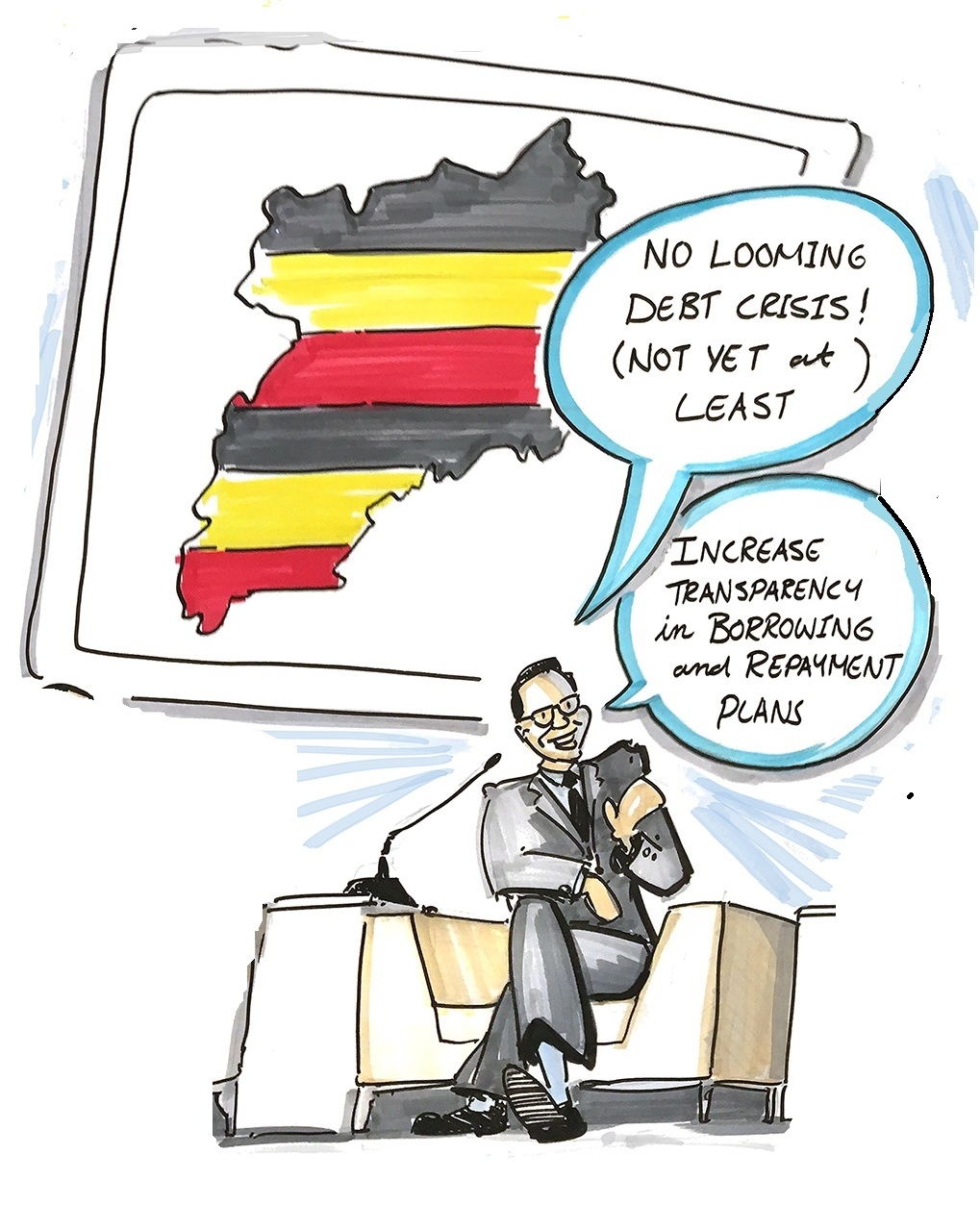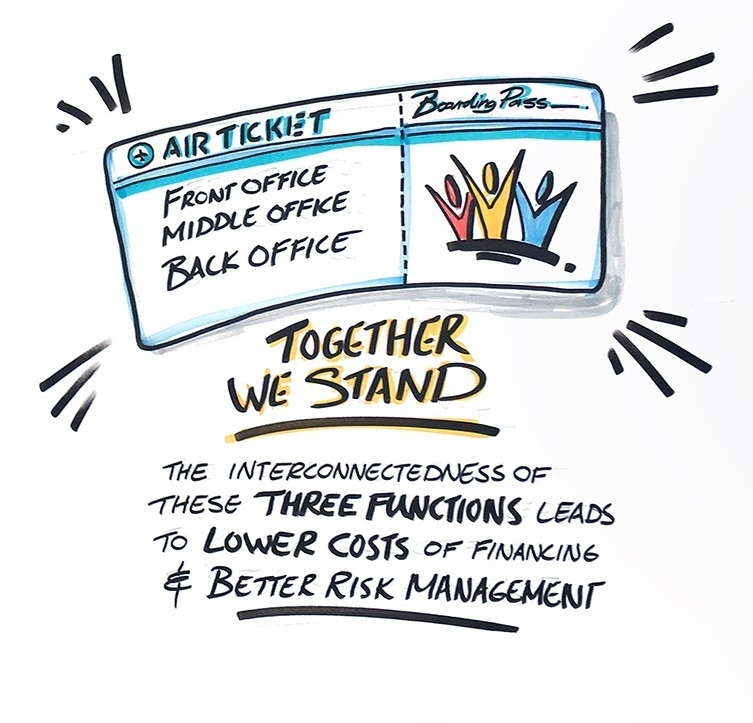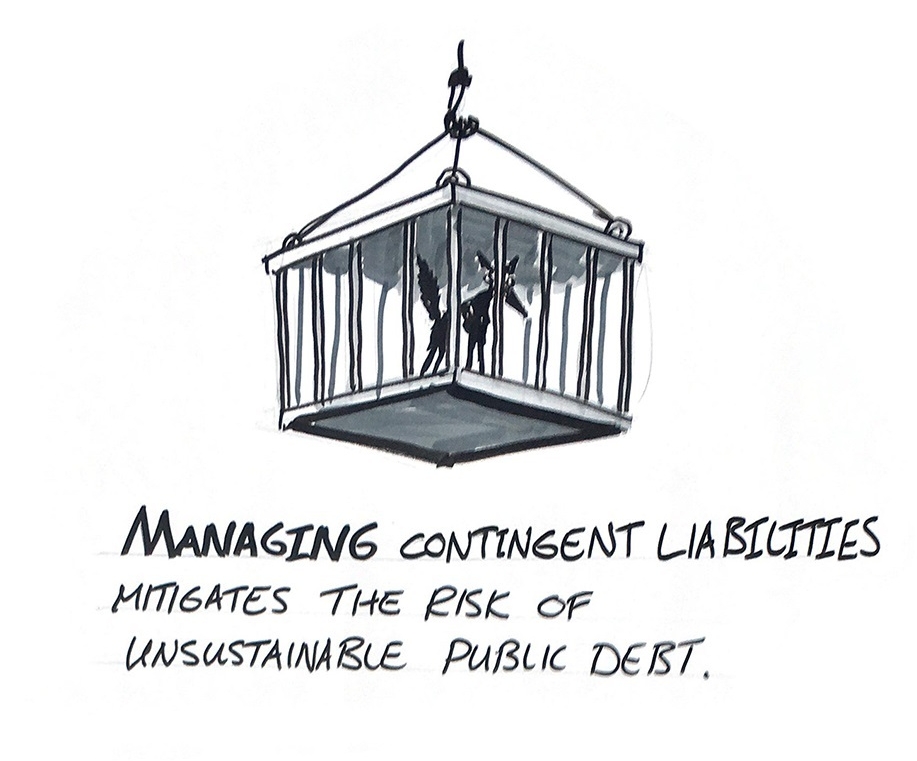
Effective management of the public debt stock and funding a country’s annual borrowing requirement are key to financial stability. This was a prominent message at CABRI’s recent workshop held in Kampala with Uganda’s public debt office.
The slowdown in domestic revenue, especially in large resource-rich countries, coupled with increasing pressure to invest in infrastructure and social programmes, have led African governments to turn increasingly to local and international debt markets. These rising levels of debt are becoming a growing concern in many African countries, but not yet a looming crisis.
How should governments manage public debt, and how should they finance their annual borrowing requirement to ensure that debt is accumulated at the lowest possible rate and at an acceptable level of risk?
Over the four days of the Kampala workshop, participants from the Ugandan Ministry of Finance and peers from Malawi, Rwanda and South Africa covered the most critical aspects in public debt management, including strategies, capabilities and the appropriate structures. And equally important, the workshop also reaffirmed the rightful role of inputs from the debt office throughout the budget process in managing risks and contingent liabilities.
For the Ugandan Debt Management Office (DMO), the workshop agreed that the ability to do its job will be premised on the following:
Firstly, public debt management is informed by a debt management strategy that contains the following key elements: the annual funding plan; the ‘rules of the game’ regarding the co-ordination of the roles and responsibilities of the various role-players; how investors will be managed; and, the underpinning legal framework.

Secondly, all debt-related functions should be located within a single unit. In many African countries, the related functions of debt management use to be located across different agencies, such as the central bank and the accountant-general’s office. Transitioning to a consolidated arrangement that locates all debt management functions within a single unit in the finance ministry has experienced some resistance, which should be expected. The workshop in Kampala agreed that all related debt management functions should be consolidated under the DMO in the finance ministry. These functions include: analysis and monitoring of costs and risks, portfolio management; transaction confirmations, settlements, payments and on-lending; and cash management. Organisationally, the functions identified here can be arranged within a front, middle and back office.
Thirdly, the DMO should actively participate in fiscal and budget policy and broader financial market decisions. These interactions provide decision-makers with a better understanding of the amount of debt that can be accumulated within a specific timeframe and how to ensure that debt service costs are sustainable and do not crowd-out priority spending. Money spent on the servicing of debt could have been allocated for spending on education and health. Consistent interaction with investors and others players in the debt market also helps to build trust and credibility, and potentially contributes to the lowering of borrowing costs.

Fourthly, the changing economic and political context requires the debt manager to adapt and acquire the appropriate capabilities for the job. This is particularly relevant in the case of changing risks and unexpected contingent liabilities, such as in the case of loan guarantees extended to State Owned Enterprises that are unable to service their debt.
When governments incur debt they defer a tax to a future generation, who will either reap the benefit of a sensible borrowing strategy or suffer the burden when investments in education, health and economic programmes are crowded-out by unsustainable debt service costs.